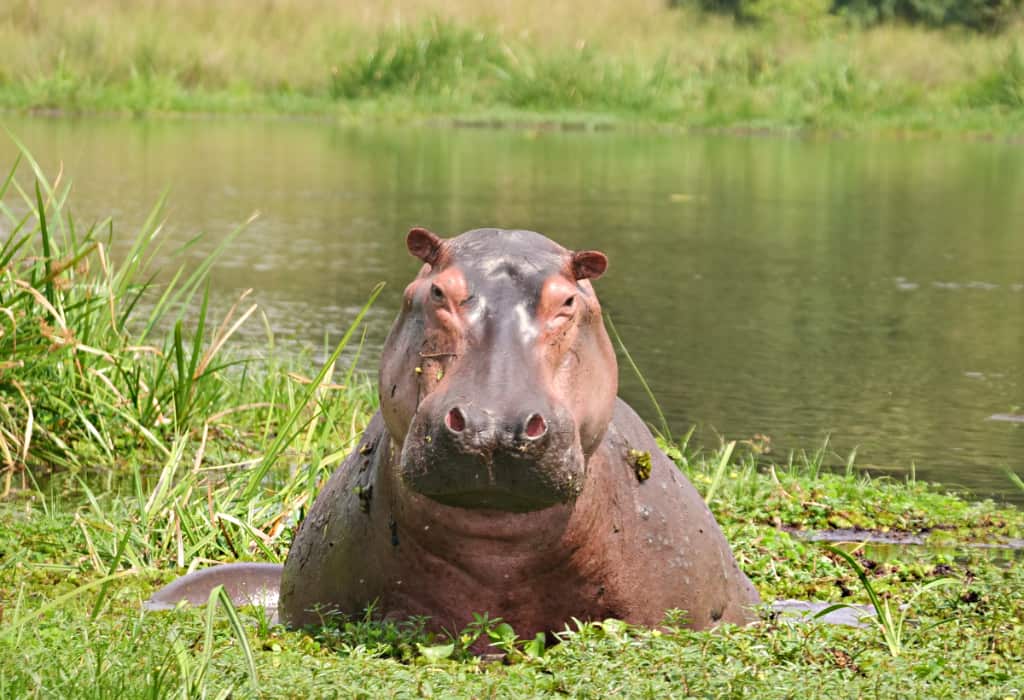
The agreement was reached after Humane Society International, the Humane Society of the United States, Humane Society Legislative Fund and the Center for Biological Diversity filed a lawsuit last year, challenging the agency’s failure to respond to the groups’ 2022 legal petition seeking Endangered Species Act protection for hippos. The Service was required by law to determine whether hippos should be protected under the Act by March 2023, but did not do so, prompting the 2024 lawsuit.
“Hippos are vulnerable to overexploitation due to their low reproductive rate, delayed sexual maturity, and dependance on aquatic ecosystems. Listing hippos under the ESA would require an enhancement finding to ensure that imports to the United States do not contribute to further the decline of hippos for imports to continue,” said Madison Miketa, wildlife scientist for Humane Society International, speaking on behalf of HSI and the Humane Society of the United States. “It would also generate conservation benefits, such as a much-needed increase in research efforts and funding. As hippos continue to face increasing threats such as climate change, habitat loss and poaching, these measures will be especially important to ensure their survival.”
Wild hippos are in a precarious position, with populations declining as much as 20% between 1996 and 2008, according to the International Union for Conservation of Nature. Habitat loss and degradation, drought, poaching and the international trade of hippo parts, including their teeth, skulls, ivory, skin and meat, all threaten this keystone species.
“The iconic hippo deserves better than to be traded as parts and frivolous souvenirs, so I’m relieved these animals will finally get a decision on protections,” said Tanya Sanerib, international legal director at the Center for Biological Diversity. “While these delightfully chunky creatures at least have a deadline now, overall things are moving too slowly to protect imperiled wildlife. To halt the surging tide of the global extinction crisis, the U.S. needs to dedicate far more resources so it isn’t just sticking its finger in the dike.”
The United States is the primary driver of demand for hippo products, responsible for nearly half of global imports between 2019 and 2021. At least 3,081 hippos were killed to meet U.S. demand between 2009 and 2018, and the popularity of hippo products has continued.
Hippo parts and products are easy to find and purchase across the United States. An undercover investigation by HSI and the HSUS revealed thousands of hippo products for sale on the U.S. market.
The most common items were made from hippo leather — including belts, shoes and purses — and from hippo ivory, such as handles on knives and bottle openers and decorative carvings. Vendors also sold hippo hunting trophies, including shoulder mounts (the animal’s head and neck) and teeth.
“There’s no mistaking the joy in a child’s eye the first time they lay eyes on a hippo — whether it’s a cartoon version or an image in a nature documentary. The sad reality, however, is that the species that brings so much joy to so many people is at great risk in part due to demand for ‘hippo products’ from U.S. consumers,” said Gillian Lyons, director of regulatory affairs for the Humane Society Legislative Fund. “It is incumbent that the United States steps up to the plate and takes drastic steps to reduce its part in the species’ decline and we are encouraged that we now have a deadline for that to happen. In the meantime, we will continue to fight this battle — urging the U.S. government to do all it can to restrict the commercial import and sale of hippo parts and products.”
Hippos continue to be killed in the wild to fuel this legal trade, and protections under the Act would help guard hippos against U.S.-fueled exploitation. The protections requested in the petition would substantially restrict the commercial import and sale of hippo parts and products while also promoting public awareness and providing funding to achieve the Act’s conservation goals.
Center for Biological Diversity (CBD)
https://biologicaldiversity.org




